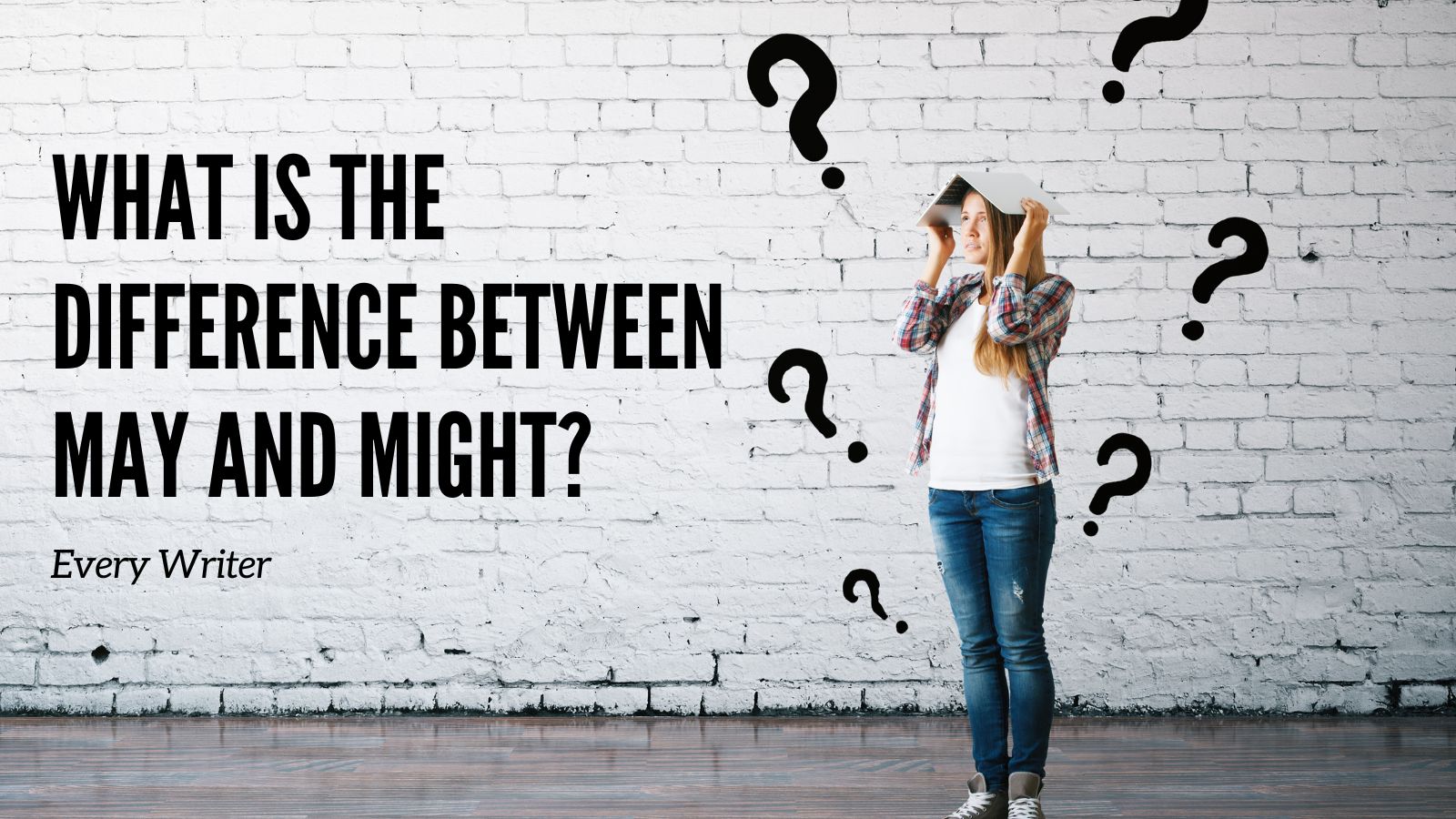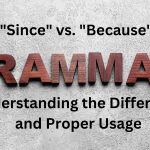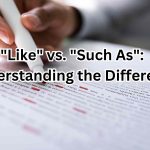
What is the difference between May and Might?: The modal verbs “may” and “might” are often used interchangeably, but they have subtle differences in meaning and usage. Understanding these differences can help you communicate more effectively and precisely in your writing and speech. In this essay, we will explore the distinctions between “may” and “might,” as well as provide examples of how to use them correctly in various contexts.
The Difference Between May and Might
One of the primary differences between “may” and “might” is the degree of likelihood or possibility they convey. “May” is generally used to express a higher degree of possibility or likelihood compared to “might.” For instance, consider the following examples:
- I may go to the beach this weekend if the weather is nice.
- I might go to the beach this weekend if I finish my work early.
In the first sentence, using “may” suggests that there is a stronger possibility of going to the beach, given that the only condition is good weather. In the second sentence, “might” implies a lower degree of possibility, as it depends on the completion of work, which adds an extra layer of uncertainty.
Another difference between “may” and “might” is their use in expressing permission or request. “May” is more commonly used in formal or polite contexts to ask for or grant permission. For example:
- May I borrow your pen, please?
- You may leave the room when you have finished your test.
In these cases, “may” is used to politely request permission or to grant permission in a formal setting, such as a classroom or a professional environment.
On the other hand, “might” is not typically used to express permission or request. Instead, it is often used to express a suggestion or a possibility in a less formal context. Consider the following examples:
- You might want to try the new restaurant downtown.
- He might be running late due to traffic.
In these sentences, “might” is used to suggest a possibility or to express uncertainty about a situation.
When it comes to past tense, both “may” and “might” can be used to express uncertainty or possibility about past events. However, “might” is more commonly used in this context. For example:
- She may have forgotten to lock the door when she left.
- He might have taken a different route to avoid the construction.
In both sentences, the speaker is expressing uncertainty about past events. While “may” is acceptable, “might” is more frequently used to convey this sense of uncertainty in the past tense.
It is important to note that in some cases, “may” and “might” can be used interchangeably without significantly altering the meaning of the sentence. This is particularly true when expressing possibility or uncertainty. For instance:
- It may rain tomorrow.
- It might rain tomorrow.
Both sentences express the possibility of rain, and the choice between “may” and “might” does not substantially change the meaning.
However, in other cases, using “may” instead of “might” (or vice versa) can change the intended meaning or tone of the sentence. This is especially true when expressing permission or making suggestions. For example:
- You may want to reconsider your decision. (expressing a stronger suggestion)
- You might want to reconsider your decision. (expressing a milder suggestion)
In the first sentence, “may” conveys a stronger suggestion, implying that reconsidering the decision is advisable or necessary. In the second sentence, “might” presents the suggestion as a gentler option to consider.
To use “may” and “might” correctly, it is essential to keep in mind the context and the intended meaning. When expressing a higher degree of possibility or likelihood, use “may.” When conveying a lower degree of possibility or uncertainty, especially in the past tense, opt for “might.” In formal situations or when asking for permission, use “may.” For less formal suggestions or possibilities, “might” is often more appropriate.
In conclusion, while “may” and “might” are often used interchangeably, they have nuanced differences in meaning and usage. Understanding these differences can help you express yourself more accurately and effectively in various contexts. By considering the degree of possibility, the formality of the situation, and the intended meaning, you can choose between “may” and “might” to convey your message with clarity and precision.
Etymologies of May and Might
The words “may” and “might” have interesting etymologies that can be traced back to Old English.
May:
The word “may” comes from the Old English word “mæg,” which is the first and third-person singular present indicative form of the verb “magan,” meaning “to be able to” or “to have power.” This verb is derived from the Proto-Germanic “*maganą,” which also means “to be able to.”
In Old English, “mæg” was used to express ability or possibility. Over time, the meaning shifted to include permission and likelihood. By the Middle English period, “may” had become a modal verb used to express possibility, permission, or wish.
Might:
“Might” is the past tense form of “may.” In Old English, the past tense of “magan” was “meahte” or “mihte.” These forms evolved into “might” in Middle English.
The word “might” is also related to the Old English noun “miht,” which meant “power, strength, or ability.” This noun comes from the Proto-Germanic “*mahtį,” which is derived from the same root as “*maganą.”
In contemporary English, “might” is used as a modal verb to express possibility, speculation, or counterfactual situations. It can also be used as a noun meaning “power, strength, or force.”
Both “may” and “might” have evolved over time to express various shades of meaning related to possibility, permission, and ability.
- 100 Screenwriting Ideas to Get You Writing - January 20, 2026
- 100 Winter Storm Writing Prompts - January 17, 2026
- 100 Haunted House Story Starters: Craft Your Scariest Tale Yet - January 10, 2026



